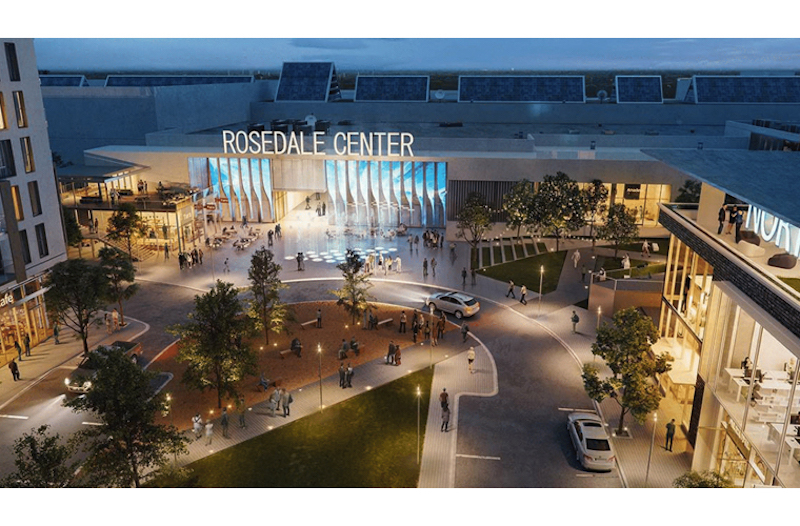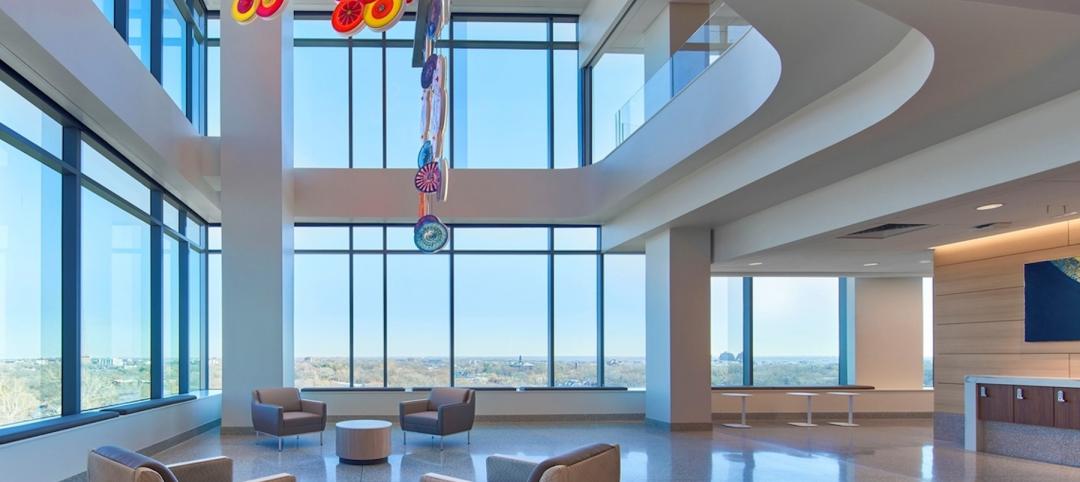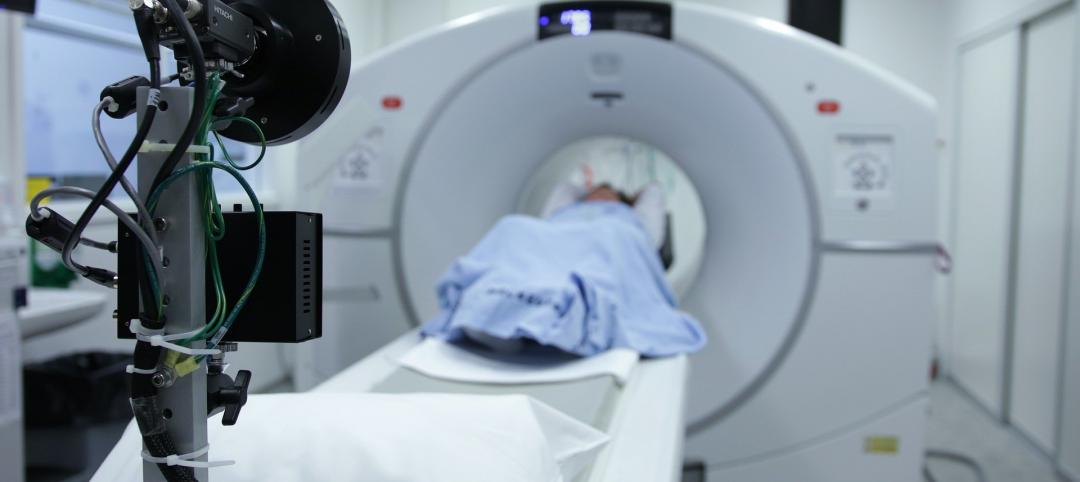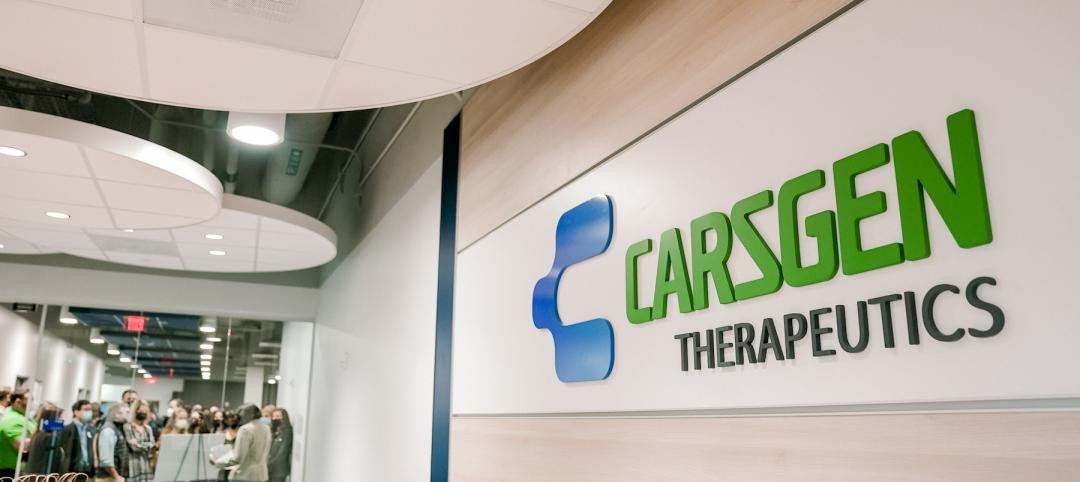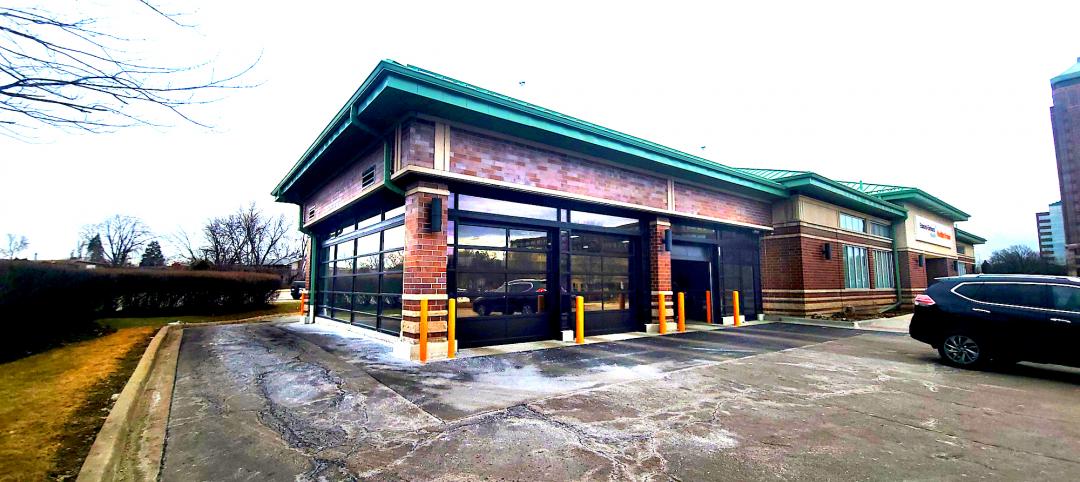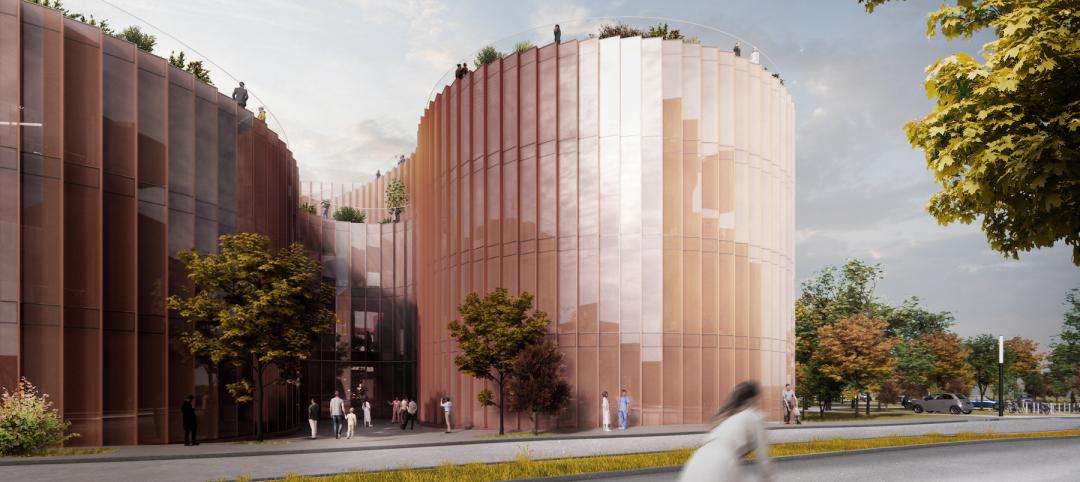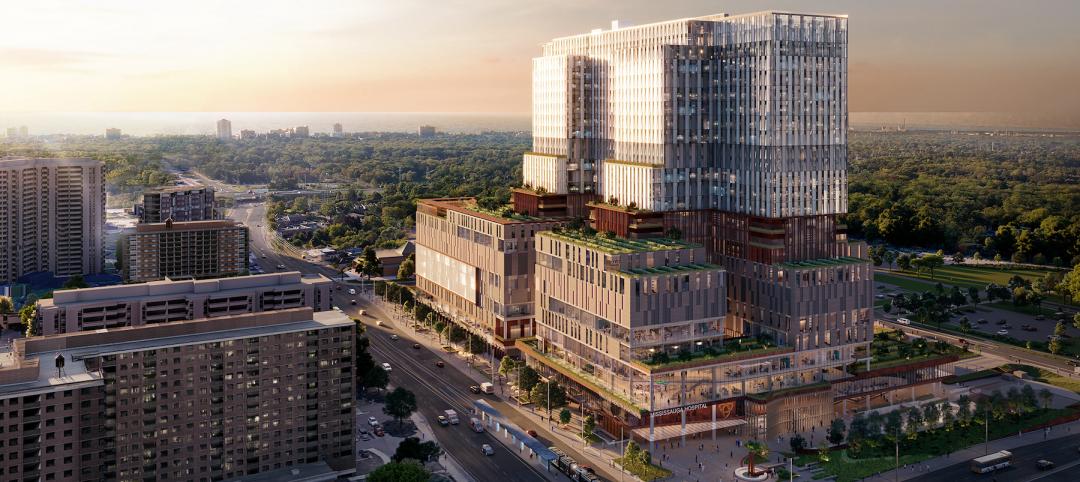The 1.2 million-sf shopping mall Rosedale Center in Roseville, Minn., yesterday disclosed its plans for a $100 million-plus expansion that will add a hotel, grocery, multifamily housing, fitness centers, restaurants, coworking spaces, more retail, and a medical office building.
Within the $400 billion global market for healthcare construction, two-fifths of all new retail transactions are for medical offices, compared to 2% a decade ago, according to recent AIA estimates. The number of medical centers in retail space—which Accenture put at 2,800 in 2017, compared to 351 in 2006—could nearly double by 2022, according to JLL projections.
As more developers, landowners, and retail strip owners look for ways to bring a medical facility to their properties, “nontraditional retail spaces for healthcare services are expected to continue to rise in popularity,” predicts JLL in its 2019 research report “Retail and the New Healthcare Consumer.”
Medical office buildings reflect the 'Amazon effect'
That medical offices are finding their way into empty retail space partly reflects the “Amazon effect” that has made online ordering a prevalent mode of shopping and has left bricks-and-mortar vacancies in its wake.
“Healthcare is seeking out locations that are convenient and accessible to their patients,” explains Steve Barry, president of Rendina Healthcare Real Estate, a developer based in Jupiter, Fla. “Retail often has great visibility, great access to traffic count, and plenty of parking.”
Rendina has been exploring this trend for a while now, he says. A few years ago, the firm developed a project for Hilton Head Regional Healthcare in South Carolina that placed a 60,000-sf outpatient facility inside a vacated Publix supermarket with a shopping mall.
Rendina is currently in the process of developing a project that will create an 80,000-sf healthcare facility within a regional shopping mall that Barry says is repositioning itself as a lifestyle center that includes entertainment and grocery venues. Barry couldn’t identify the location or client for this project, but says its construction should start next year.
Retrofitting a retail store for conversion to a medical office depends on the level of care being provided, which may have structural and air ventilation requirements, says Barry.
From a land-pricing and operational cost standpoint, moving healthcare into retail could actually be more expensive than, say, opening a stand-alone facility, because retail stores, says Barry, are generally in higher-density (and higher-rent) locations.
What’s more important, however, is attracting the right kinds of customers to these buildings. “Patients are exerting far more control over where they go for care,” he says.
Barry foresees this trend having some runway left. He expects to see new variations and models, too: for example, his firm is working on developing a hybrid urgent-emergency care facility under one roof, so that patients could access the appropriate care and be charged appropriately for it. Medical offices, says Barry, “would be part of this rehab mix.”
He believes that, despite technology advancements that allow patients to access care from their homes or phones, “healthcare in general will always have a need for space.”
Related Stories
Healthcare Facilities | Jun 13, 2022
University of Kansas Health System cancer care floors foster community and empathy
On three floors of Cambridge Tower A at The University of Kansas Health System in Kansas City, patients being treated for blood cancers have a dedicated space that not only keeps them safe during immune system comprising treatments, but also provide feelings of comfort and compassion.
Sponsored | Healthcare Facilities | May 3, 2022
Planning for hospital campus access that works for people
This course defines the elements of hospital campus access that are essential to promoting the efficient, stress-free movement of patients, staff, family, and visitors. Campus access elements include signage and wayfinding, parking facilities, transportation demand management, shuttle buses, curb access, valet parking management, roadways, and pedestrian walkways.
Healthcare Facilities | Apr 19, 2022
6 trends to watch in healthcare design
As the healthcare landscape continues to evolve, IMEG’s healthcare leaders from across the country are seeing several emerging trends that are poised to have wide-ranging impacts on facility design and construction. Following are six of the trends and strategies they expect to become more commonplace in 2022 and the years to come.
Healthcare Facilities | Apr 14, 2022
Healthcare construction veteran creates next-level IPD process for hospital projects
Can integrated project delivery work without incentives for building team members? Denton Wilson thinks so.
Market Data | Apr 14, 2022
FMI 2022 construction spending forecast: 7% growth despite economic turmoil
Growth will be offset by inflation, supply chain snarls, a shortage of workers, project delays, and economic turmoil caused by international events such as the Russia-Ukraine war.
Laboratories | Apr 7, 2022
North Carolina's latest play for biotech real estate development
The Tar Heel State is among a growing number of markets rolling out the welcome mat for lab spaces.
Healthcare Facilities | Apr 7, 2022
Visibility breeds traffic in healthcare design
Ryan Companies has completed several healthcare projects that gain exposure by being near retail stores or office buildings.
Healthcare Facilities | Mar 25, 2022
Health group converts bank building to drive-thru clinic
Edward-Elmhurst Health and JTS Architects had to get creative when turning an American Chartered Bank into a drive-thru clinic for outpatient testing and vaccinations.
Projects | Mar 21, 2022
BIG-designed Danish Neuroscience Center will combine groundbreaking science and treatment
A first-of-its-kind facility, a new Danish Neuroscience Center in Aarhus, Denmark designed by BIG, will combine psychiatry and neuroscience under one roof.
Projects | Mar 18, 2022
Toronto suburb to build the largest hospital in Canada
A new hospital in Ontario will nearly triple the care capacity of its existing facility—becoming the largest hospital in Canada.


